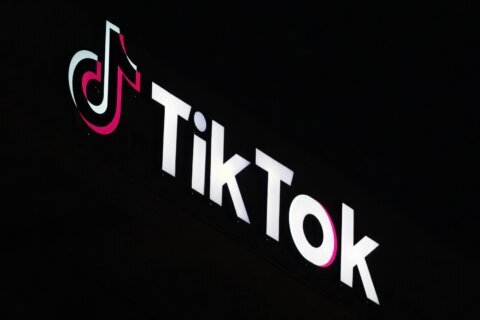The battle over TikTok’s future might be drawn out through legal maneuvering or political posturing, but if the Chinese-owned social media app loses those battles, the technological battle for its life will be over fast.
Faced with a looming deadline to sell or be blocked from U.S. servers, the U.S. Supreme Court just agreed to hear arguments over TikTok’s future in the final days before its deadline. Lawyers for TikTok and its parent company, ByteDance, are hoping the high court will be swayed by arguments centered on First Amendment free speech protections.
“If I was a lawyer on the other side, I would say, ‘Wait a second. Your client, the Chinese government or the Chinese Communist Party or TikTok, the Chinese company, are guilty of blocking hundreds and hundreds of much more major news sites,'” said Gabriel Robins, a computer science professor at the University of Virginia.
“Isn’t that disingenuous? As if they have no idea why we want to block one of their websites, where they’re blocking hundreds and hundreds of our websites and have been doing it for years,” he added.
Robins noted that China already blocks websites like Google, YouTube and any number of international news outlets. He recounted the time he spoke about the Tiananmen Square Massacre to students from China and they had no idea what he was talking about.
“They cast a very, very wide net with respect to censorship. And here we are trying to do it just in a much milder way, and only once, to China and it’s getting a huge amount of pushback from China,” he noted.
Robins said arguments that ByteDance is a totally independent, private company don’t really ring true, since China can access any data it wants to.
“The company has no choice but to capitulate. There’s no notion of due process or some sort of subpoena mechanism that they need to prove that they have the right or the need to do this,” he said. “They just literally come in and take whatever they want from companies in China. That’s how China works.”
And he says if ByteDance loses its effort to hold on to TikTok, the same technology used by China to keep citizens from reading The Washington Post, The New York Times or seeing anything on YouTube would also be able to stop TikTok from being viewed here.
“Technologically, you can have the internet servers refuse to pass any messages from, or to, the TikTok domain name, tiktok.com or whatever server domain names they use,” Robins said.
Some people might try to get around the ban by using a VPN, but most people would not, and the site would lose a massive amount of users to other social media platforms. But if ByteDance is able to reach a deal to sell the site, the process to transfer all the data over could happen very fast.
“The servers don’t have to physically move. They can stay in place. A lot of the things like servers are already on U.S. soil anyway,” he noted. “(The new owner) will just take it over one phase at a time, keep it running for a while so users won’t be disrupted and won’t get angry. And at some point, the last employees of TikTok will leave the building, and the building will be occupied by (the new owner’s) employees.”
From there, it would be up to software engineers to make sure that nothing was left behind in the software to allow China any future access to the users and their data stored by TikTok.
“You have to pour over the code line by line,” Robins said. “Sit down and look at all the source code line by line and remove any Trojan horses from the source code that might sit in place and with nefarious intent.”
Robins said that’s all doable.
“Companies do this all the time. … When a bank buys another bank … they want to make sure that when they merge their client base and server base and databases, you don’t get some Trojan horses sneaking in the back door, waiting to pillage all your accounts and transfer all your money out,” he said.
Get breaking news and daily headlines delivered to your email inbox by signing up here.
© 2024 WTOP. All Rights Reserved. This website is not intended for users located within the European Economic Area.








